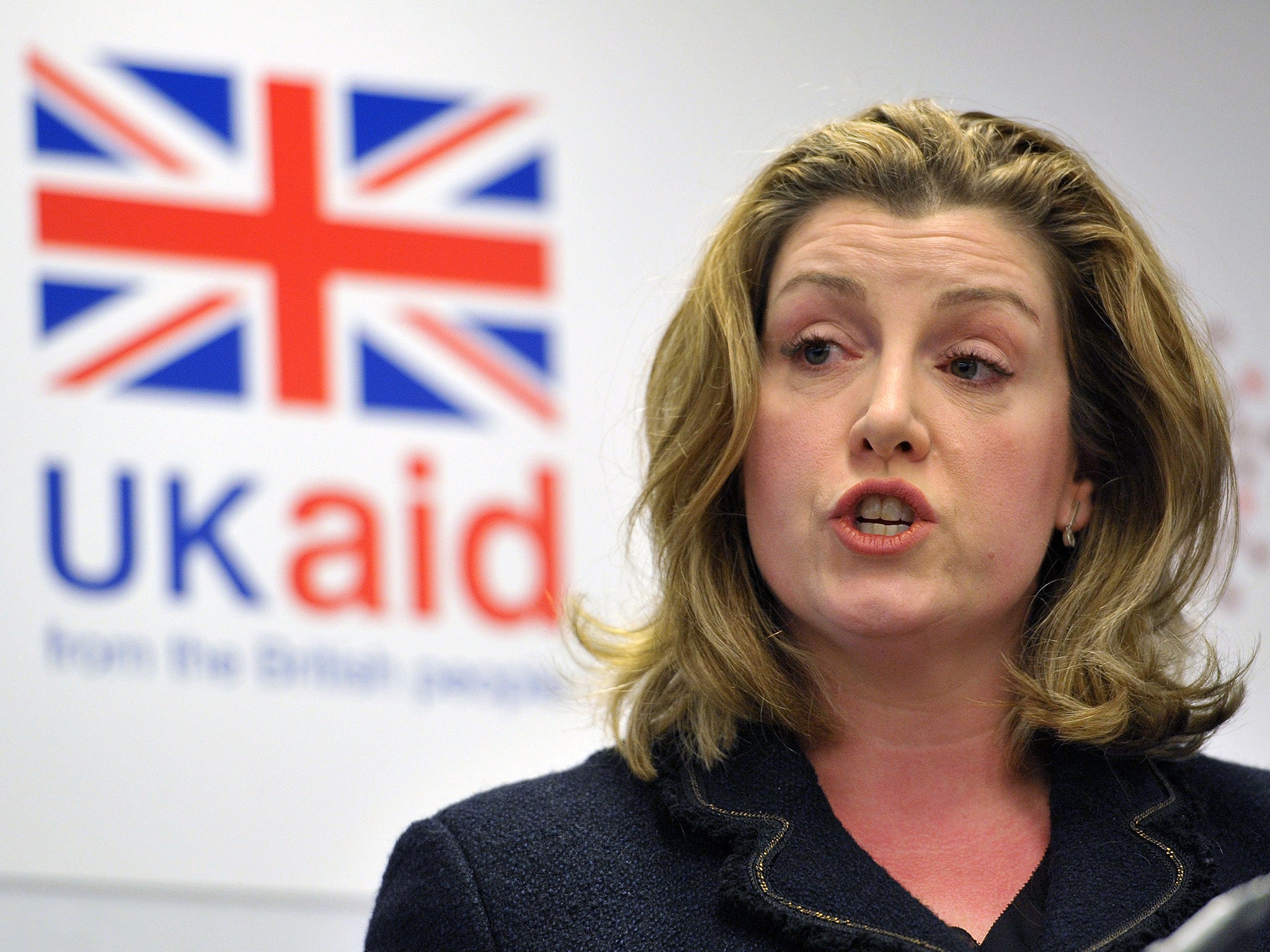Penny Mordaunt, have you thought about what might really happen if you cut off foreign aid after Brexit?
Criticism of our spending on overseas development is often dismissed merely as the preserve of racists or nationalists – but what Mordaunt said simply made no sense


Your support helps us to tell the story
This election is still a dead heat, according to most polls. In a fight with such wafer-thin margins, we need reporters on the ground talking to the people Trump and Harris are courting. Your support allows us to keep sending journalists to the story.
The Independent is trusted by 27 million Americans from across the entire political spectrum every month. Unlike many other quality news outlets, we choose not to lock you out of our reporting and analysis with paywalls. But quality journalism must still be paid for.
Help us keep bring these critical stories to light. Your support makes all the difference.
One of the oddities of the great Brexit debate was (and perhaps still is) the degree to which it pulled in questions that were not fundamentally related to the European Union.
Among Brexiteers who opposed the EU on the simple grounds that Britain put in more money than it got back, comparisons were often made with the UK’s generous overseas aid programme. In short, why should the taxpayer help out people in far-flung places when the cash could be spent on domestic projects?
For a few, there is an inherent xenophobia at the heart of that question: why waste money on Johnny Foreigner (not the band) when Brits need it more? These are the same folk who largely oppose immigration too – on the basis that we can’t afford to expand our public services to deal with an already growing population, let alone additional incomers.
That’s not to say that criticism of our spending on overseas development can be dismissed merely as the preserve of racists or nationalists. After all, as a proportion of GDP the UK’s expenditure in this field has grown in the years after the financial crash of 2007-08. Meanwhile, many domestic budgets have been squeezed and wages have fallen.
In truth, though, we should not condemn Britain’s overseas outgoings for having increased in recent times. Rather, we should remember that until 2013 the UK had persistently failed to meet the target set by the United Nations for all developed countries to spend 0.7 per cent of GDP on foreign aid programmes. We signed up to the objective in 1974.
Frankly, it was one of the key achievements of the coalition government finally to meet the goal and to enshrine foreign spending in law. Yet question marks over the 0.7 per cent commitment continue to be asked.
With that in mind, an article in The Telegraph by the International Development Secretary, Penny Mordaunt, has caused something of a stir, with its contention that Britain must be more “hard-headed with cash”.
Mordaunt, a noted Brexiteer, goes on to indicate a change of approach within her department. “It will,” she says, “no longer be enough for a project simply to be achieving good things. We must be able to demonstrate why it absolutely needs to be Britain that pays for them…”
In particular, it appears that richer developing countries such as India may be in line for less UK money if their own governments are not prepared to show a commitment to investing in key areas such as education and healthcare. If they choose not to, says Mordaunt, “that will inform our decisions”.
There is naturally something in this. It should be fairly self-evident that Britain, like any donor, ought not simply to hand out wads of cash with no questions asked, and should consider whether a programme seeking funds might not actually be able to raise the money through other, more appropriate means.
But the potential consequence of Mordaunt’s approach is to leave vulnerable people at the mercy of decision-making by governments which are hardly progressive by British standards. It is all very well for the Secretary of State to say “I will not invest when others should be putting their hands in their pockets” but for the people who benefit from British-funded projects abroad, it is irrelevant who “should” be paying – they either gain assistance or they do not.
Likewise, Mordaunt says she will ensure in the future that British aid “directly contributes to tackling the issues that matter most to the British people”. Again, it makes sense as a slogan but seems to assume that the global issues which bother residents of the UK are top priorities for those in real need elsewhere, which plainly is not always the case.
Britain, as Mordaunt correctly notes, is a “development superpower” which should be proud of its status and its record of bringing relief to those in need abroad. However, one reason for the UK’s standing is that we channel funds to such a remarkable range of projects, many of them niche and not all of them providing an obvious, immediate return on our investment.
To move to a populist strategy, which seeks to address concerns primarily through a prism of British public opinion therefore puts the UK’s position as a superpower of overseas aid programmes in peril – even if we continue to meet our overall commitment of spending 0.7 per cent of GDP.
It also risks leaving many people who would once have gained desperately needed assistance from Britain’s generosity wondering why we have decided to look the other way.
Join our commenting forum
Join thought-provoking conversations, follow other Independent readers and see their replies
Comments